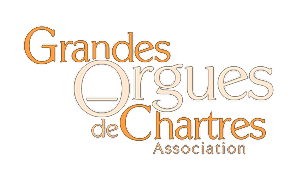 Born in Cenon (Gironde), Lys Nordet first trained in classical and contemporary dance with Mlle Texier and M. Paoli (professor at the CNR of Bordeaux). She then taught classical dance and body expression in Bordeaux, then in Paris where she obtained a diploma as a physical trainer.
Born in Cenon (Gironde), Lys Nordet first trained in classical and contemporary dance with Mlle Texier and M. Paoli (professor at the CNR of Bordeaux). She then taught classical dance and body expression in Bordeaux, then in Paris where she obtained a diploma as a physical trainer.
She began learning lyrical singing with Jacques Mars and entered the conservatory of the 10th arrondissement in Éliane Manchet’s class. She obtained her first prize in singing from the Paris conservatories in Bernadette Antoine’s class, as well as a first medal unanimously in musical theater and lyrical art in Joëlle Vautier’s class.
Stage career: she notably performs Mireille in Gounod’s “Mireille,” Belinda in Purcell’s “Dido and Aeneas,” Rowan in Britten’s “The Little Sweep,” Gabrielle in Offenbach’s “La Vie Parisienne” (directed by Jérôme Savary), Alice in Rossini’s “Le Comte Ory,” Violetta in Verdi’s “La Traviata,” and Micaëla in “Carmen.” She performs in various Parisian venues, at the Opéra-Comique, in Germany, the United States, and regionally.
Concert repertoire: she sings Vivaldi’s Magnificat and Gloria, Handel’s “Dixit Dominus,” Bach’s St. John Passion, Beethoven’s 9th Symphony, the Requiems of Mozart, Fauré, Brahms, Verdi, and Saint-Saëns, as well as songs by Fauré, Chausson, Poulenc, Debussy, and Rachmaninoff.
She collaborates with numerous conductors including Yves Parmentier, Jean-Claude Soubeyran, Claude Schnitzler, and international Ecuadorian and Chilean conductors. She regularly participates in festivals in France (Brittany, Vaison-la-Romaine, Ardèche) and abroad (New York, Connecticut, Ecuador).
She participates in contemporary creations of works by Pierre-André Athané, Michel Bosc, Gréco Casadesus, and Alain Payette. As a show creator, she conceives “Mélimél’opérette” which she adapts for different festivals.
Since 2005, she has worked with the Trabucco Company for lyrical shows and musical comedies on national tour (“Ça C’est Paris,” “Les Folles Années de l’Opérette,” “Piaf 100 ans d’amour”).
————
Born on May 8, 1959, in Niort, Gilles Lefèvre began his violin studies in 1968 at the Conservatory of the Province of Quebec in Montreal with Calvin Sieb.
In 1974, he won the First Prize of the Montreal Symphony Orchestra Competition, then became a laureate of the International Youth Competition in Prague in 1975.
He studied in the United States at the Juilliard School with Ivan Galamian and Dorothy Delay, then in France with Zino Francescatti, Josef Gingold, Richard Odnoposoff, and Christian Ferras. From 1976 to 1982, he studied at the CNSM in Paris where he obtained his first prize in violin with Christian Ferras, as well as the chamber music prize in Geneviève Joy’s class.
The Cziffra Foundation invited him as a soloist for the inauguration of the Franz Liszt Auditorium in Senlis in 1977 and at the Chaise-Dieu festival. He performs as a soloist with the Montreal Symphony Orchestra, the Île de France Orchestra, the Nice Symphony Orchestra, and the Toulouse Capitole Orchestra.
As a chamber musician, he collaborates with Christian Ferras, Georges Cziffra, Michel Plasson, Gérard Jarry, Pierre Pierlot, Marc-Olivier Dupin, and his brothers Philippe, David, and Alain Lefèvre. In 1981, he participated in the Paris Chamber Music Festival with his brother Alain, which earned them engagements in Brussels, Munich, and Paris.
From 1983 to 1986, he was concertmaster of the Paris and Normandy Chamber Orchestra. In 1985, he obtained his Teaching Certificate and began teaching, which he continues at the CNR of Tours and the P. Dukas Conservatory of the 12th arrondissement of Paris.
He is concertmaster of the Instrumental Ensemble of Mayenne with which he records works by Jacques Chailley and Albert Fasce (world premiere) on the Solstice label. A founding member of the Trio Ars Viva, he is invited as concertmaster to the Tours Symphony Orchestra and has held the position of concertmaster of the Orléans Symphony Orchestra since 2015.
He plays a Paul Kaul violin from 1936, a model created especially for Georges Enesco.
————
Awakened early to music, Patrick Delabre practices piano and singing. He studies organ and composition at the national regional conservatory of Lille, then deepens his knowledge of harmony, counterpoint, fugue, and organ at the national superior conservatory of music in Paris, from which he is a four-time laureate.
Appointed assistant principal organist to Philippe Lefebvre at Chartres Cathedral in 1976, he succeeded him in 1986, and served as principal organist until his retirement in September 2022; he is now organist emeritus of the great organ. A laureate of the Lyon international improvisation competition and finalist of the Chartres international improvisation competition, he develops his activity around the cathedral’s great organ, teaching, concerts, and educational programs.
After teaching composition at the Poitiers conservatory for twenty years, he took responsibility for the organ classes in Lucé and Chartres in 2003.
He performs on the great French instruments: Saint-Maximin, Poitiers, Sainte-Croix in Bordeaux, Saint-Ouen in Rouen, and in Paris (Saint-Sulpice, Saint-Eustache, Notre-Dame). He also gives concerts abroad: England, Belgium, Germany, Poland, Czech Republic, Switzerland, United States, Canada, Japan.
A member of the jury of international competitions (Chartres, Hamburg, Saint-Blasien), he records an album of Johann Sebastian Bach and César Franck at Chartres Cathedral. The Forlane record label commissioned him to compose arrangements of traditional popular songs for children’s choir and instrumental ensemble, recorded by the Children’s Choir of the Chartres National School of Music in 2002.
His recording of Mozart’s church sonatas with members of the Chartres String Quartet receives favorable reception from music critics. In 2006, as part of the Fulbert of Chartres Millennium, he participated as improvising organist in the creation of the oratorio Stella Maris by Helge Burggrabe, filmed by Arte at Chartres Cathedral and also created in Hamburg. He also performed the premiere of Jacques Charpentier’s Mass of Chartres for voices, instruments, and organ.
He is a Knight of the Order of Arts and Letters.


